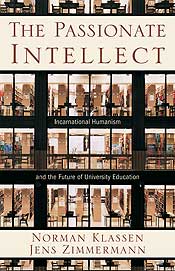Inside Higher Ed recently reported on the findings of a survey regarding the religiosity of college and university professors in the United States. The study was conducted by by two sociologists, Neil Gross of Harvard University and Solon Simmons of George Mason University, and was for a presentation sponsored by the Social Science Research Council.
Here are some excerpts from the Higher Ed article:
Listen to many critics of higher education, and you would think that faith had been long ago banished from the quad — or at least all those quads not at places like Notre Dame or Liberty or Yeshiva.
It turns out though, that there are plenty of believers on college faculties. Professors may be more skeptical of God and religion than Americans on average, but academic views and practices on religion are diverse, believers outnumber atheists and agnostics, and plenty of professors can be found regularly attending religious services.
….
On the question of belief in God, the study notes the “common perception� that professors are atheists and suggests that this view is simply not true. The following statistics show how professors aligned themselves:
Professors and Belief in God
Positions of Belief % of Professors I don’t believe in God. 10.0% I don’t know whether there is a God and I don’t believe there is any way to find out. 13.4% I don’t believe in a personal God, but I do believe in a Higher Power of some kind. 19.6% I find myself believing in God some of the time, but not at others. 4.4% While I have my doubts, I feel that I do believe in God. 16.9% I know God really exists and I have no doubts about it. 35.7% While the study found no sector of higher education without believers, there are significant differences by type of institution and discipline. Faculty members at religious colleges made up about 14 percent of the sample in the survey and they were more likely to believe in God. While 52 percent of professors in non-religiously affiliated colleges believe in God either despite doubts or without doubt, 69 percent of those at religious colleges feel that way. Professors are most likely to be atheists or agnostics at elite doctoral institutions (37 percent) and less likely to be non-believers at community colleges (15 percent).In terms of disciplines, professors in psychology and biology are the least likely to believe in God (about 61 percent in each field are atheists or agnostics), with mechanical engineering not far behind at 50 percent. Professors most likely to say that they have no doubt that God exists are in accounting (63 percent), elementary education (57 percent), finance (49 percent), marketing (47 percent) and nursing (44 percent).
The survey found a “surprisingly high� proportion — 19 percent — of the professoriate that identifies as “born-again Christian,� and they are not restricted to religious colleges. While very few professors (about 1 percent) have this identity at elite doctoral institutions, the share at secular institutions over all is 17 percent.
This is quite interesting. I imagine that the results would be a bit different for Canada, with a less belief — especially in the major public universities as compared to private institutions.
(HT Targuman)

 Last week Taylor University College hosted Dr. Jens Zimmermann from Trinity Western University as our speaker for our annual Faith & Culture Conference. The theme of this year’s conference was “Incarnational Humanism and the Christian University.” Most of the lectures touched on some aspect of what it means to be a student at a Christian university — many of his thoughts on this subject may be found in his just-published book (with Norman Klassen), The Passionate Intellect: Incarnational Humanism and the Future of University Education (Baker Academic, 2006;
Last week Taylor University College hosted Dr. Jens Zimmermann from Trinity Western University as our speaker for our annual Faith & Culture Conference. The theme of this year’s conference was “Incarnational Humanism and the Christian University.” Most of the lectures touched on some aspect of what it means to be a student at a Christian university — many of his thoughts on this subject may be found in his just-published book (with Norman Klassen), The Passionate Intellect: Incarnational Humanism and the Future of University Education (Baker Academic, 2006;